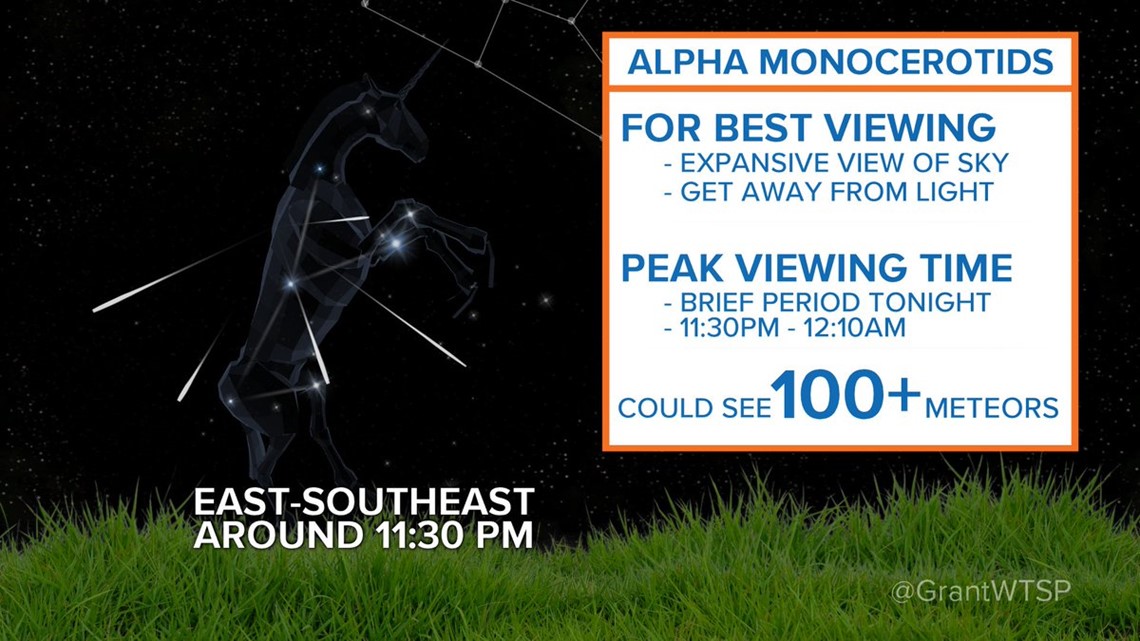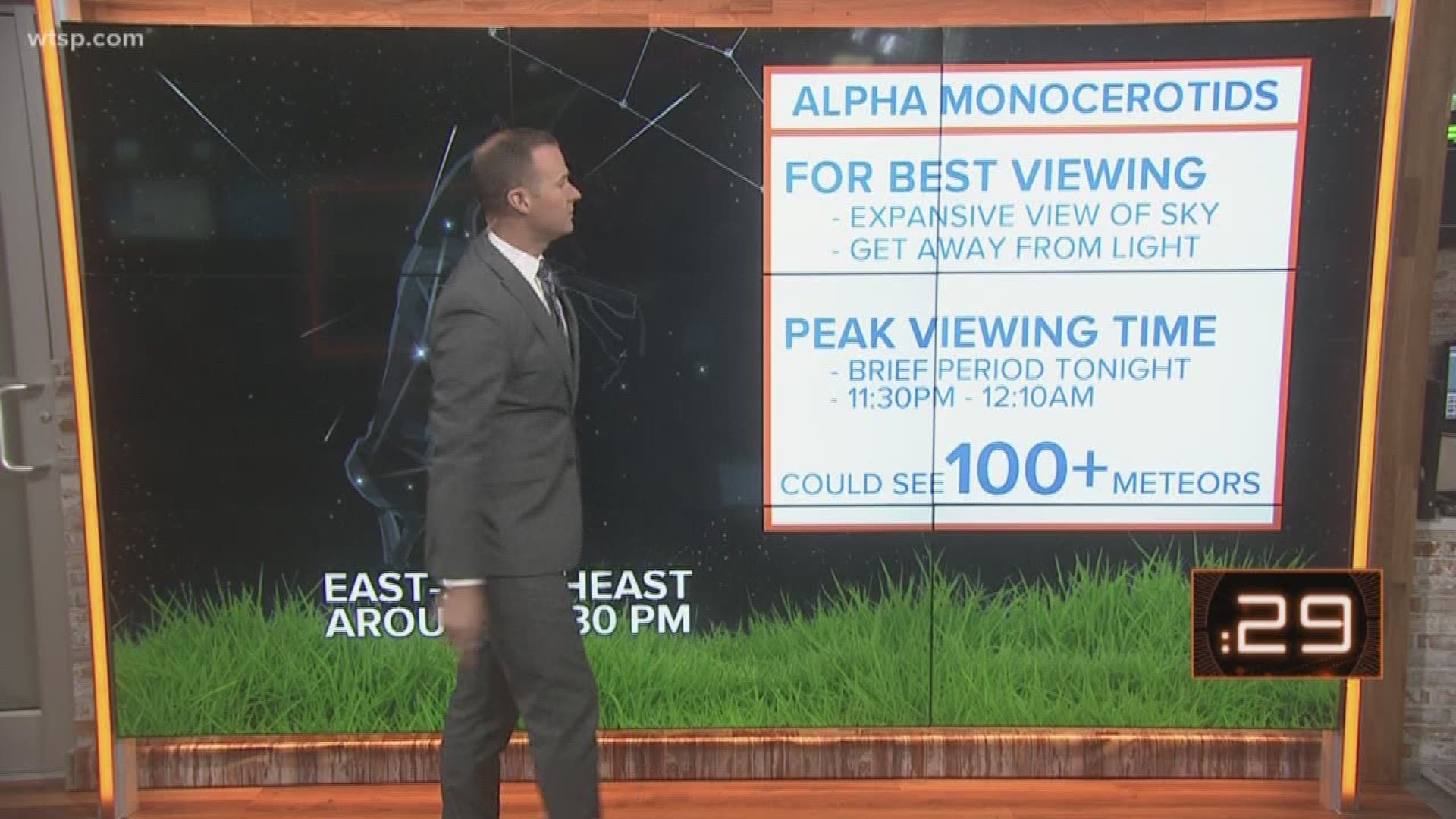ST. PETERSBURG, Fla. — Thursday night, scientists say there will be a rare meteor outburst that could be brief, but intense.
Unlike annual meteor showers, the rare alpha Monocerotids could produce hundreds of shooting stars. However, the sky show is not a guarantee and the meteor shower may not even last 40 minutes.
The peak viewing time is expected from 11:30 p.m. to just after midnight. Those with the best views will be in South America and the eastern half of North America.
Most of Florida, except the Panhandle area, is under "good" viewing conditions.




The alpha Monocerotids are named after the constellation Monoceros, "unicorn" in Greek. The shooting stars will come from an unidentified comet as Earth plows through its dusty tail.
The most recent alpha Monocerotids shower came in 1995, where meteors were detected at about 5 or 6 per minute. The rare shower was observed on only three other occasions in recorded history: 1925, 1935 and 1985, according to Space.com.
Peter Jenniskens, a senior research scientist with the SETI Institute and NASA's Ames Research Center and Esko Lyytinen of the Finnish Fireball Network, just released a short paper explaining the high probability of seeing the alpha Monocerotids Thursday night.
The two said anyone who wants to see this rare occurrence should head outside as soon as possible during the peak viewing period. While the shower could fill the sky with shooting stars, it's very possible the event will be brief.
What other people are reading right now:
- 'Unicorn meteor storm' to be triggered by mysterious comet Thursday night
- Navy veteran found in his apartment had been dead for three years, medical examiner says
- Utah woman's stepkids saw her topless. She may have to register as a sex offender
- 145 coffins found at Tampa high school, part of erased African American cemetery
- The 'boat graveyard': Why are there more than a dozen old, sunken boats sitting in Tampa Bay?
- Wear purple for World Pancreatic Cancer Day Thursday
FREE 10NEWS APP:



